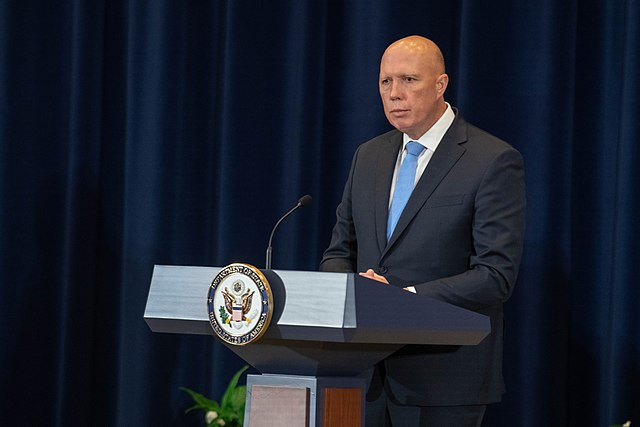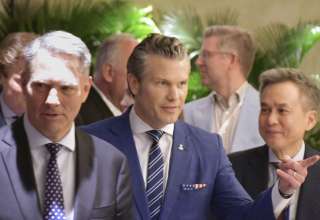A parliamentary move by opposition leader Peter Dutton to allow registered unemployed workers to be allowed to earn up to $300 a fortnight without losing welfare benefits has clearly shown the Liberal Party preferred business model, based on undermining awards and other regulations together with enhancing further casualisation of employment.
As Canberra seek to raise benefits for unemployed workers and finalise their legislation to challenge casualisation of employment, the coalition appear hell-bent on pushing other agendas which reveal the type of business model they prefer without providing too many details. To say they play their cards close to their chests, would be an under-statement.
Peter Dutton has already stated the coalition will propose unemployed workers be allowed to earn $300 a fortnight before losing their benefits. (1) No comment about wage theft, however, has accompanied the coalition position. A major cause of wage theft in Australia can be attributed to cash-in-hand payments and refusal by employers to pay penalty rates together with wages level below national minimum levels.
Studies of the problem have revealed it is widespread and estimated to total around $1.35 billion per year. When studied in the context of Australia only having a workforce of about 13 million, it has been estimated approximately a third of all workers experience the problem. (2) Other studies have found estimated wage theft an even greater problem, at around $5 billion, but affecting only 3 million workers. (3) The Working Women’s Centre in Adelaide recovered over $500,000 recently, in one financial year. (4)
Fair Work Australia increased the national minimum wage from 1 July 2023 to $23.23 per hour. Taking the Dutton proposals into consideration, an unemployed worker would be allowed to work 12.9 hours a fortnight, or 6.45 hours a week during the present financial year.
One can but question what type of employer would offer employment on such a limited basis and what type of contract of employment would be offered; unless they intend flooding workplaces with large numbers of short-week workers to undermine Awards of other, permanent members of workforces by creating a sub-class of workers obliged to accept the back and call of employers, if, and when, required. Problems, therefore, arise.
The Manufacturing Award, for example, states a part-time employee must be engaged and paid for a minimum of four consecutive hours per shift … although by mutual agreement the parties may agree … to an engagement of no less than three consecutive hours per day or shift. (5) The employee and employer, also, ‘before commencing part-time employment … must agree in writing on … hours worked … the days … starting and finishing times … and … the classification’. (6)
Manufacturing has traditionally been associated with widespread labour intensive duties and practices which include sorting parts and components, re-work and numerous activities conducted to comply with annual stock-takes of large volumes and capacity. Whether the moves by the Liberal Party are aimed at cutting manufacturing costs, remains, as yet, to be established. The industry has long been targeted by successive Liberal administrations.
Other industries which have, historically, had relatively high levels of casualisation include construction and hospitality. They, likewise, remain in clear focus of Liberal leaders.
Awards and the National Employment Standards, however, specify a standard working week is 38 hours, while other, part-time work, is also still held by similar contracts of employment, which are supposed to legally provide all workers with:
information concerning the nature of the employment;
the name of the employer;
the classification level and rate of pay;
the number of hours a worker is required to perform.
Whether an employer would bother to undertake such legal requirements for 12.9 hours a fortnight is highly unlikely. It would also involve other obligations on their part which include payment of Superannuation.
Australia already has a serious problem with employers using fraudulent and creative accounting techniques to not pay Super, which is now amounting to eleven per cent from 1 July 2023. While eleven per cent of $300 does not amount to much of a Super investment for a worker, it would, nevertheless, be expected to be paid by employers.
A study conducted by the ABS last year found underpayment or non-payment of Super in Australia already amounted to an estimated $6 billion a year, even with Super being policed by government departments. (7)
A far more likely option, under the Dutton proposals would be employers to use a worker for general labour and payment by cash-in-hand. And to do so discretely, and being non-accountable. The Australian Tax Office may have a few comments to make in due course about such practices, if the Dutton scheme is ever implemented.
But there are also other important considerations, with far-reaching implications.
Safety regulations, for example, involve a worker being covered by safe working conditions while on an employers premises; an injured worker is expected to sign a legally-binding Statutory Declaration, detailing the nature of the injury, the date and time it took place and where it happened. Whether an employer would undertake such requirements for 12.9 hours a fortnight by a worker, remains a matter for serious consideration, particularly if other relevant documentary requirements had not been fulfilled with non-compliance of Awards and regulations.
When the Liberal Party announced they were opening a new battlefront over work or welfare, the slogan may be appealing to those who accept their political spin without too much scrutiny as most of their members and supporters regularly do. (8) It is, in fact, nothing new: union-bashing on their part has a long, sordid and under-hand history.
While workers rely upon unions as their only insurance against unscrupulous behaviour on the part of employers, a recent statement from Australia Industry Group chief executive Innes Willox, continued the Dutton political line with included references to proposed industrial relations changes as ‘anti-productivity and driven by outdated union fixations’. (9) So much for ‘good faith’ industrial relations practices by the leader of a major Australian employers’ organisation. He is supposed to set an example for his underlings.
Willox, furthermore, remains well-known in business circles for his curious views and denial of even the most basic reliable data from official sources: he does not accept, for example, that recent and present high inflation rates are the product of price/profit inflation, which is easily substantiated from banking statistics and the Forbes list. Rather, he regards other, non-substantiated reasons for the problem, carrying the hallmarks of sub-rational belief systems. (10)
Willox, nevertheless, also sits comfortably alongside other counterparts, including Scott Morrison, who, likewise, resides inside a cocoon of denial, as revealed by his response to the Robodebt. (11) The recent commission report on the problem, for example, revealed the grey area between government bureaucracy and downright and unacceptable illegal behaviour was, indeed, very blurred in the mind of Morrison. Or even non-existent.
And not only in the case of Morrison.
Other counterparts and those associated with the corporate sector, including Woolworths, have been charged with over a thousand criminal charges linked to wage/leave theft. (12)
And finally, there remains the issue of Australian employers taking advantage of recent arrivals and immigrants who are unaware of their rights, and some of their associates. Non- payment of correct wages, overwork, non-payment of penalty rates, overtime and non-payment of Super, all feature in a recent study conducted by the Australian Border Force. The findings generated fines of in excess of $300,00 in just two weeks. (13) It was noted officially from the government department that, ‘in some instances exploitation of workers might also be an indication of organised crime and money-laundering’. (14)
For those on the receiving end of such business models, most sensible and informed unemployed workers would vote with their feet, as they already have done for more likely than not, for at least a generation!
1. Battlelines drawn over dole queue,
The Australian, 31 July 2023.
2. Wage theft – the new model for big business,
Australian Unions, 8 September 2019.
3. Australian wage theft laws,
AKYRA., 22 February 2023.
4. Wage theft in South Australia, The Working Women’s Centre.
5. Manufacturing and Associated Industries and Occupations Award, September 2020,
Part 2, Types of Employment, Clause 10, 10.2.
6. Ibid., 10.3.
7. Senate Inquiry,
ABC News, 30 March 2022.
8. See: Dutton plays work versus welfare card as it fuels antipathy to dole,
The Australian, 1 August 2023.
9. ‘Union fixations’ hold us back,
The Australian, 2 August 2023, and,
Big Business slams better wages push,
The New Daily, 2 August 2023.
10. Australian, ibid.
11. ScoMo’s ‘well of Robodebt self-pity’,
The Australian, 2 August 2023.
12. Woolworth accused,
The New Daily, 2 August 2023.
13. ABF hits bosses for fleecing migrants,
The Australian, 21 July 2023.
14. Ibid, and,
New migrants the key victims of wage theft,
The Australian, 24 May 2023.





